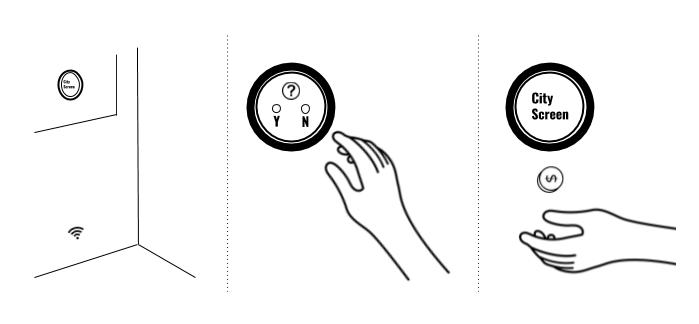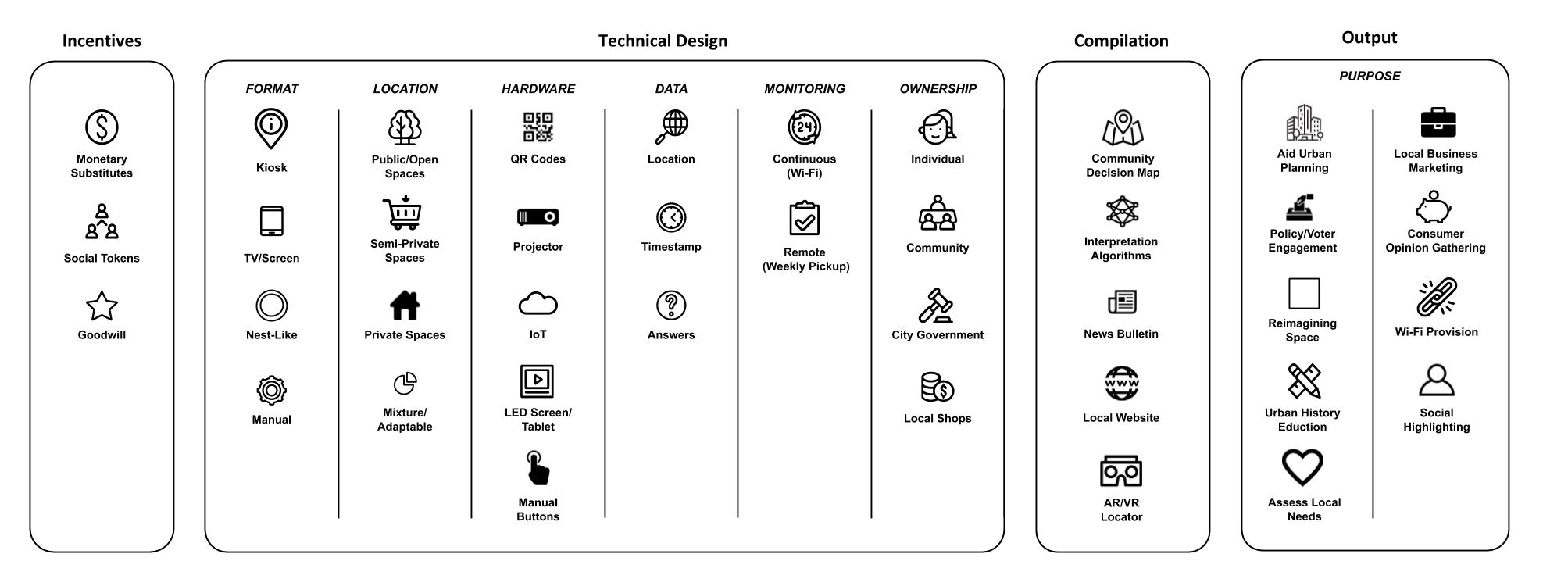CityScreens
CityScreens is a smart city technology for designed for civic engagement, created by Anusha Manglik and Eric Chien.
The device is comprised of a small, motile LED screen placed around the city that is remotely monitored for user engagement through Wi-Fi. Base qualities can be altered for accessibility across age groups and ability levels. The user, a community member, is given an incentive to answer a simple question on the device without having to give personal data. The device records this answer, rewards the user, and sends the collective answers to a database for use by the city/community.
As the use of the CityScreen can vary based on who controls its implementation (i.e. municipal housing board versus a local advocacy group), a design framework is presented below.
Here, you can see both elements of the technical design and use case are referenced in the design framework. In our proposal, we outline two potential case studies for device use.
The first one places the CityScreens in public, multi-income areas to encourage communities to express their opinions on local political issues. We use a sense of goodwill and the distribution of information to the public in local newspapers as incentives for participation.
The second case study focuses on local businesses as locations for community gathering, structuring a semi-monetary incentive for participation.
In our paper, we give background of the history of smart city technology; talk about current projects in the field; analyze the failures/successes of modern smart city civic engagement platforms; and present the CityScreen with policy suggestions. We express optimism in such a project and acknowledge that implementation, and equal power distribution, is the key to its success (while often difficult to achieve). You can read the paper here.

